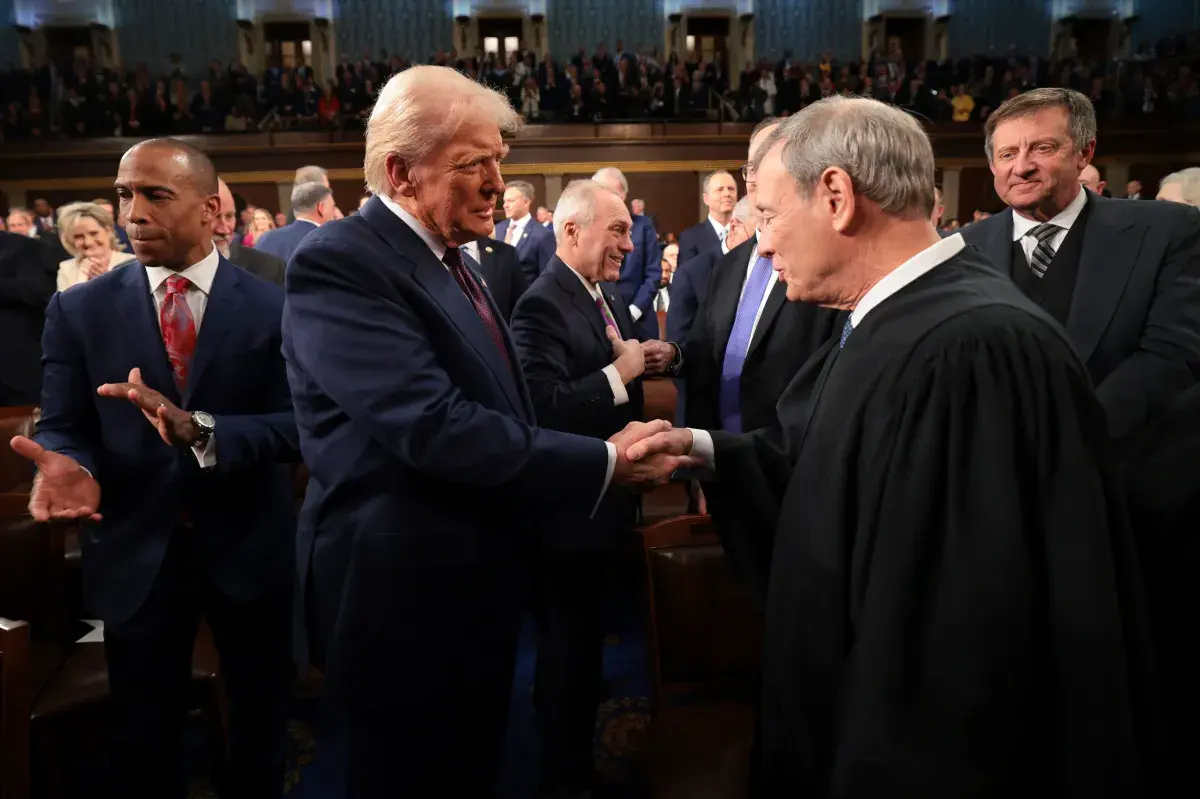
The Supreme Court on Friday extended an order allowing President Donald Trump’s administration to keep nearly $5 billion in foreign aid frozen, handing him another victory in a long-running dispute over presidential power.
With the court’s three liberal justices in dissent, the conservative majority granted the administration’s emergency appeal in a case involving billions of dollars Congress had already approved. Trump announced last month that he would not spend the money, invoking a disputed authority last used by a president about 50 years ago.
Why It Matters
The decision underscores the Trump administration’s reliance on emergency appeals to achieve major policy goals. In recent years, the Supreme Court has allowed Trump to strip legal protections from hundreds of thousands of migrants, fire federal employees, oust transgender service members from the military and remove the heads of independent agencies — all through fast-track appeals decided without full hearings or written opinions.
Though the rulings are not final, they give Trump the upper hand in contested legal battles while cases work their way through lower courts. Critics say the pattern blurs the line between normal judicial review and presidential efforts to consolidate power.
What to Know
The legal fight stems from Trump’s decision to withhold $4.9 billion in foreign aid Congress had approved. In an Aug. 28 letter to House Speaker Mike Johnson, R-La., Trump declared he would not release the money, effectively cutting the budget without going through the legislative branch.
The president used what is known as a “pocket rescission.” Under federal law, presidents can request that Congress cancel spending toward the end of a budget year, but lawmakers must approve the request within 45 days. Trump issued his notice so late in the fiscal year that the 45-day clock will not expire before Sept. 30. The White House contends that Congress’s inaction means the money does not have to be spent.
U.S. District Judge Amir Ali ruled that Trump’s maneuver was likely illegal and said Congress must approve the decision to withhold funds. The D.C. Circuit Court of Appeals declined to reinstate Ali’s earlier injunction, but Chief Justice John Roberts temporarily blocked his most recent order on Sept. 9. The full court has now indefinitely extended that block.
The majority, in an unsigned order, said Trump’s authority over foreign affairs weighed heavily in its decision but stressed it was not making a final judgment.
In dissent, Justice Elena Kagan wrote that the ruling effectively dooms the aid. “The effect is to prevent the funds from reaching their intended recipients — not just now but (because of their impending expiration) for all time,” she wrote, joined by Justices Sonia Sotomayor and Ketanji Brown Jackson.
What Happens Next
The administration has already said it will spend another $6.5 billion in aid before the fiscal year ends Tuesday. But the $4.9 billion at the center of the lawsuit is now unlikely to be distributed.
The case highlights Trump’s broader push to cut foreign aid, a policy that has produced modest budget savings while raising concerns about America’s global reputation as food, health and development programs lose funding.
Ali, in his earlier ruling, said the lawsuit raises questions of “immense legal and practical importance, including whether there is any avenue to test the executive branch’s decision not to spend congressionally appropriated funds.” The case will continue in lower courts, but the Supreme Court’s intervention ensures the money will remain frozen — and likely unspent — as the legal battle plays out.
Updates: 9/26/25, 5:18 p.m. ET: This article was updated with new information and remarks.
This article includes reporting by the Associated Press.



